News & Events
Events
Vertrauen ist ein wesentliches Element am Arbeitsplatz und hat zentrale Auswirkungen auf Gruppen und Organisationen. Aus diesem Grund ist das Konzept des Vertrauens von großer Bedeutung, sowohl in der Forschung als auch für die Praxis. Am 10. Juli 2023 führte Prof. Kurt Dirks von der University of Washington in St. Louis im Rahmen eines Vortrags an der Goethe Universität die Zuhörenden in den spannenden Bereich des „Vertrauens am Arbeitsplatz“ ein. Kurt Dirks forscht seit vielen Jahren zu den Einflussfaktoren, Grenzen und Folgen von Vertrauen in Organisationen. In seinem Vortrag fasste er die Erkenntnisse aus einem Vierteljahrhundert der Forschung zusammen und zeigte zum Beispiel, dass Vertrauen zwar ein Risiko birgt, aber viele positive Konsequenzen nach sich zieht, wie beispielsweise bessere Leistung, mehr Engagement und geringere Absichten zu kündigen. Insbesondere ging Dirks auf seine neueste Forschung zu kollektivem Vertrauen ein, also die Bereitschaft der Mitarbeitenden, den Personen in einer Organisation insgesamt zu vertrauen. Dabei wurden auch offene Punkte deutlich. Zum Beispiel ist noch nicht ganz klar, wie man solches allgemeine Vertrauen am besten messen kann. In der Diskussion zeigte sich Professor Dirks dabei offen für Impulse des Publikums, auch aus Soziologie und Wirtschaftswissenschaften.
Im Anschluss an den Vortrag konnten die Zuhörenden bei einem geselligen Get-to-gether dem Vortragenden noch Fragen stellen und es fand ein reger Austausch statt.
Das Event wurde vom Center for Leadership and Behavior in Organizations (CLBO) organisiert und von der Karl Schlecht Stiftung gesponsert.
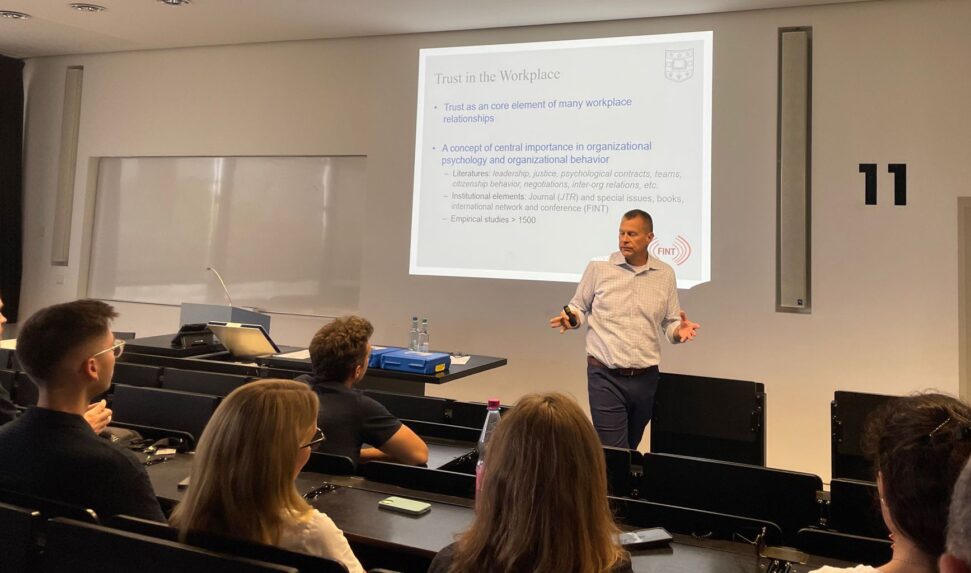
Vertrauen ist ein wesentliches Element am Arbeitsplatz und hat zentrale Auswirkungen auf Gruppen und Organisationen. Aus diesem Grund ist das Konzept des Vertrauens von großer Bedeutung, sowohl in der Forschung als auch für die Praxis. Am 10. Juli 2023 führte Prof. Kurt Dirks von der University of Washington in St. Louis im Rahmen eines Vortrags an der Goethe Universität die Zuhörenden in den spannenden Bereich des „Vertrauens am Arbeitsplatz“ ein. Kurt Dirks forscht seit vielen Jahren zu den Einflussfaktoren, Grenzen und Folgen von Vertrauen in Organisationen. In seinem Vortrag fasste er die Erkenntnisse aus einem Vierteljahrhundert der Forschung zusammen und zeigte zum Beispiel, dass Vertrauen zwar ein Risiko birgt, aber viele positive Konsequenzen nach sich zieht, wie beispielsweise bessere Leistung, mehr Engagement und geringere Absichten zu kündigen. Insbesondere ging Dirks auf seine neueste Forschung zu kollektivem Vertrauen ein, also die Bereitschaft der Mitarbeitenden, den Personen in einer Organisation insgesamt zu vertrauen. Dabei wurden auch offene Punkte deutlich. Zum Beispiel ist noch nicht ganz klar, wie man solches allgemeine Vertrauen am besten messen kann. In der Diskussion zeigte sich Professor Dirks dabei offen für Impulse des Publikums, auch aus Soziologie und Wirtschaftswissenschaften.
Im Anschluss an den Vortrag konnten die Zuhörenden bei einem geselligen Get-to-gether dem Vortragenden noch Fragen stellen und es fand ein reger Austausch statt.
Das Event wurde vom Center for Leadership and Behavior in Organizations (CLBO) organisiert und von der Karl Schlecht Stiftung gesponsert.

24. 5. 2023 Gelungenes CLBO-Event: Vortrag von Michael Groß
Am vergangenen Dienstag, den 16. Mai 2023, hielt Hon. Prof. Dr. Michael Groß einen Vortrag zum Thema "Macht und Führung - von Menelaos bis Musk". Im vollbesetzten Festsaal ging Michael Groß u.a. den Fragen nach, welche Faktoren zu einem gewaltsamen Erhalt von Macht und welche Aspekte zum Verlust von Macht führen. Vor über 250 Zuhörenden betrachtete er, welche verschiedenen Formen Macht annehmen kann und was Mächtige im Verlauf der Geschichte auszeichnete. Beim anschließenden Get-together fand ein reger Austausch statt.
Einige Impressionen dieser sehr gelungenen CLBO Veranstaltung finden Sie unten. Ein Handout des Vortrags finden Sie hier.
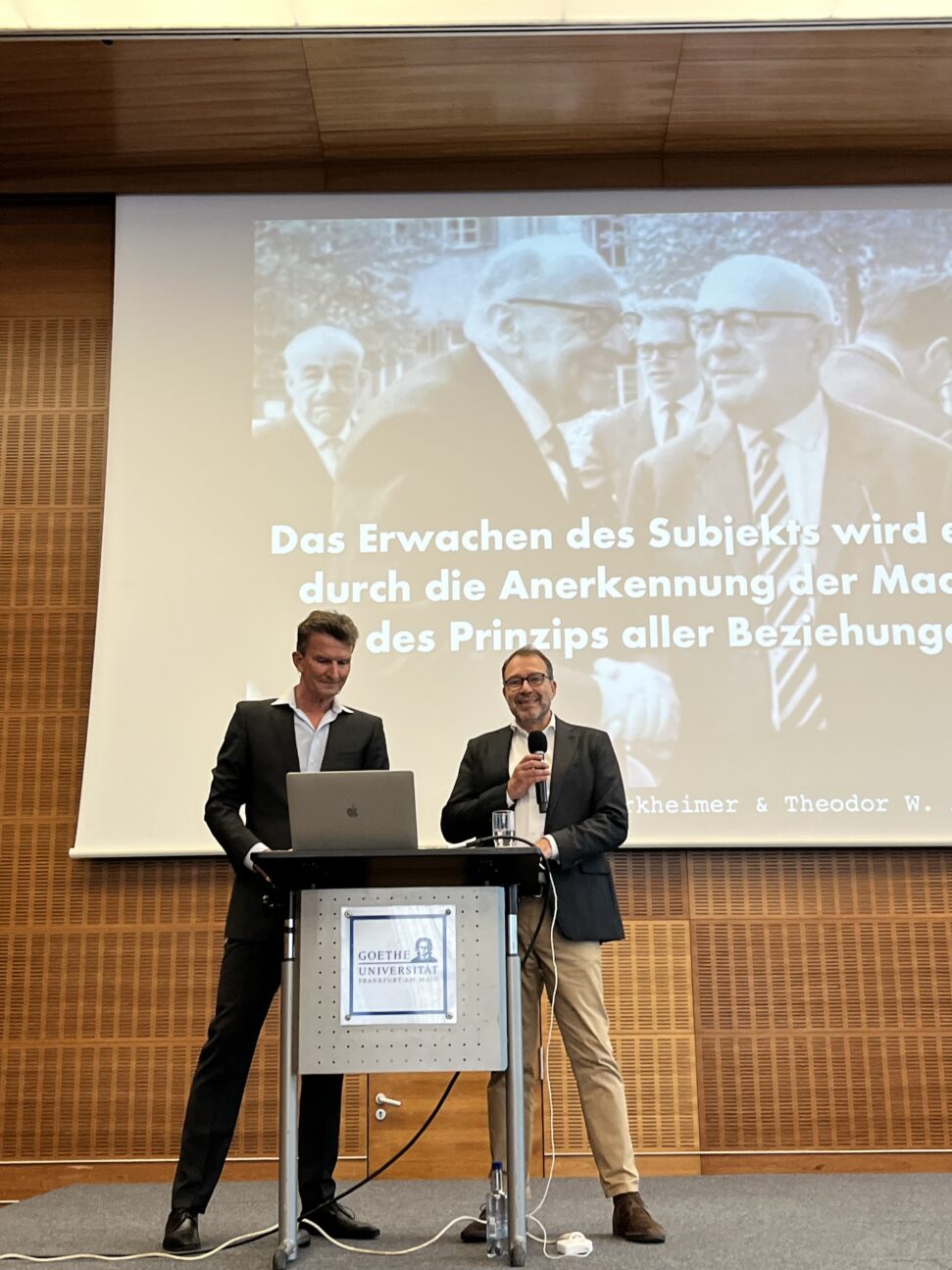
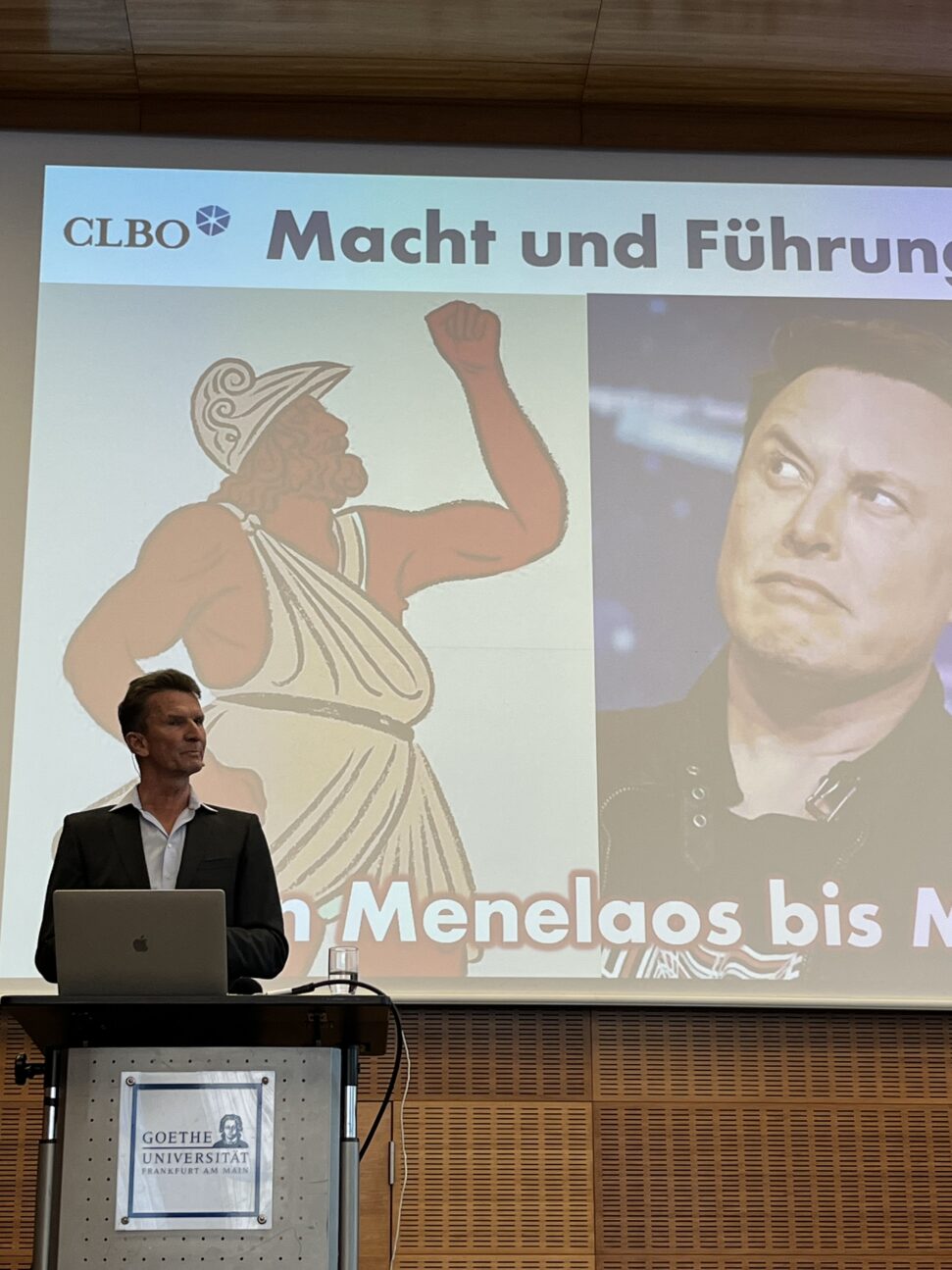
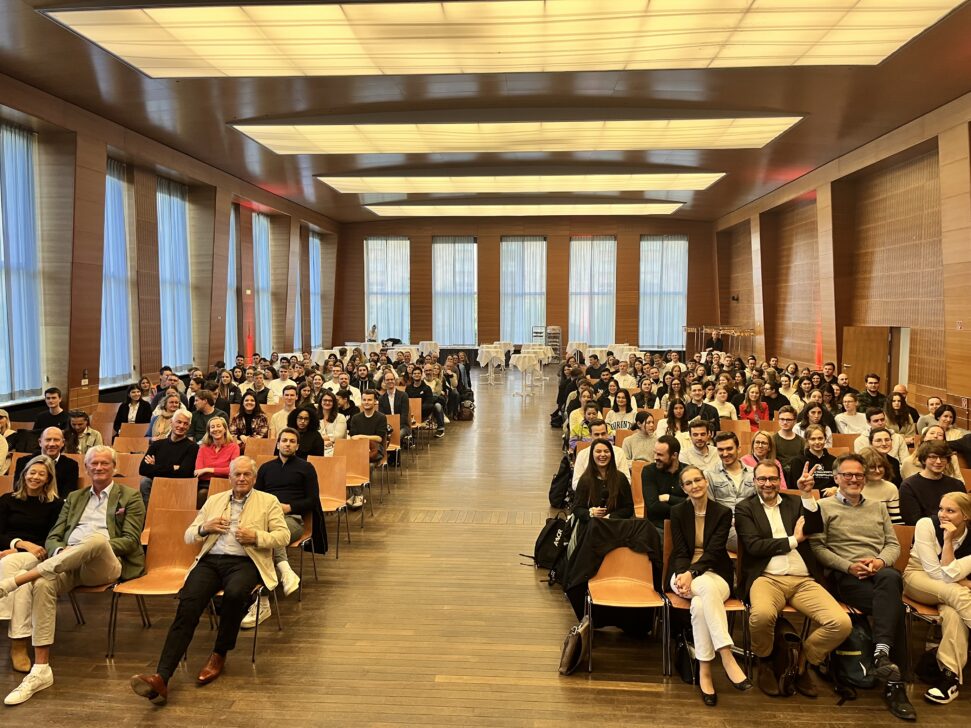
The concept of trust has emerged as a core concept in research in organizational behavior, with important implications for groups and organizations. Prof. Kurt Dirks will summarize the key questions and insights from a quarter-century of research. While considering directions for future research, he will discuss several new studies.
Kurt Dirks is best known for his research on the determinants, barriers, and outcomes of trust within organizations and published several highly cited and award-winning articles on the topic. The research has been covered by popular press such as Business Week, Fortune, New York Times, and the Washington Post. Prior to his current roles, Kurt has served in several leadership positions at the Olin Business School, including Interim Dean, and at the university, including Vice Chancellor of International Affairs.
On July 10, 2023, Prof. Kurt T. Dirks will give a lecture at the Westend Campus. Further information can be found here.
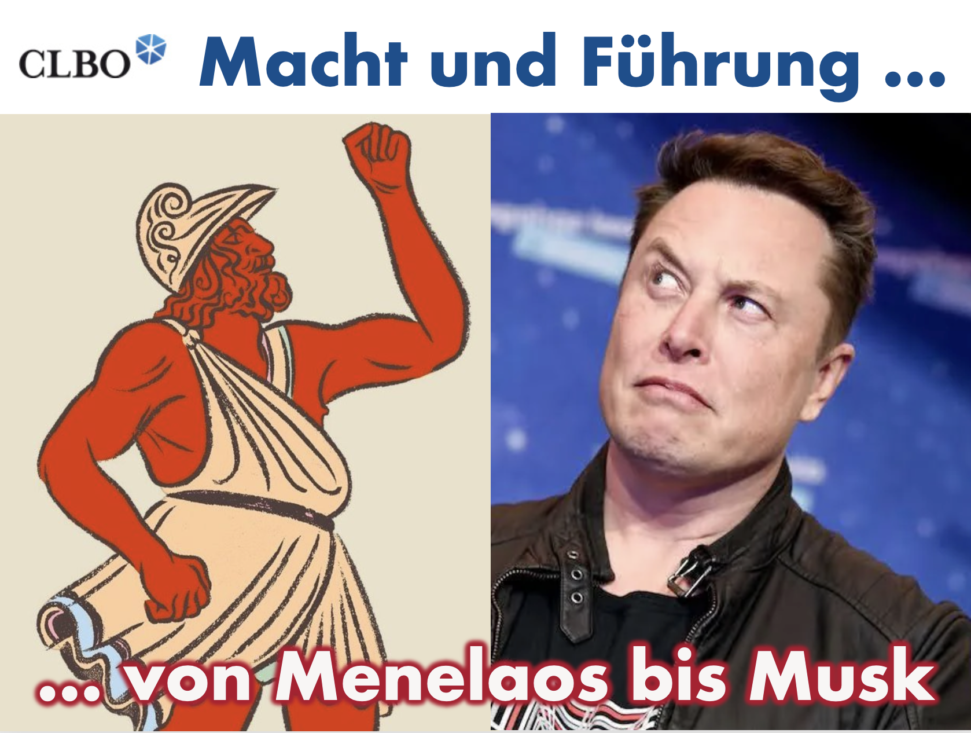
Vortrag
Macht und Führung – von Menelaos bis Musk
Hon. Prof. Dr. Michael Groß
Dienstag, 16. Mai 2023,
Casino 823 (Festsaal),
Goethe Universität Frankfurt
18.30h – 20.00h
mit anschließendem Get-together
Keine Führung ohne Macht. Individuelle Macht bleibt jedoch unwirksam - ohne Autorität und Vertrauen, die einer Person freiwillig geschenkt werden. Was zeichnete dazu Mächtige aus - von der Antike bis zum digitalen Zeitalter, vom Trojanischen Pferd bis zu Tesla? Und welche Spannungen und Konflikte führen zum Verlust der Macht oder zum Versuch des gewaltsamen Erhalts? Über Antworten zu diesen Fragen werden wir sprechen.
Hier finden Sie die detaillierte Einladung.
Die Teilnahme an der Veranstaltung ist kostenfrei und wird durch das Center for Leadership and Behavior in Organizations (CLBO) organisiert. Wenn Sie teilnehmen möchten, bitten wir Sie, sich über den folgenden Link für die Veranstaltung anzumelden: https://www.soscisurvey.de/vortrag_teilnahme/. Das CLBO ist ein interdisziplinäres Forschungszentrum an der Goethe-Universität Frankfurt. Um mehr über das CLBO zu erfahren, besuchen Sie unsere Website: www.clbo-frankfurt.org.
We are pleased to announce the first joint event with a lecture by Prof. Paul Seabright (Institute for Advance Studies, Toulouse) on the 9th of December 2021 from 5:00pm - 6:30pm. He will speak about “Understanding religious organisations as competing platforms: what has happened to religion in the world since the Second World War?" For more Information click Paul Seabright Invitation The lecture will be due to Covid-19 online on ZOOM.
